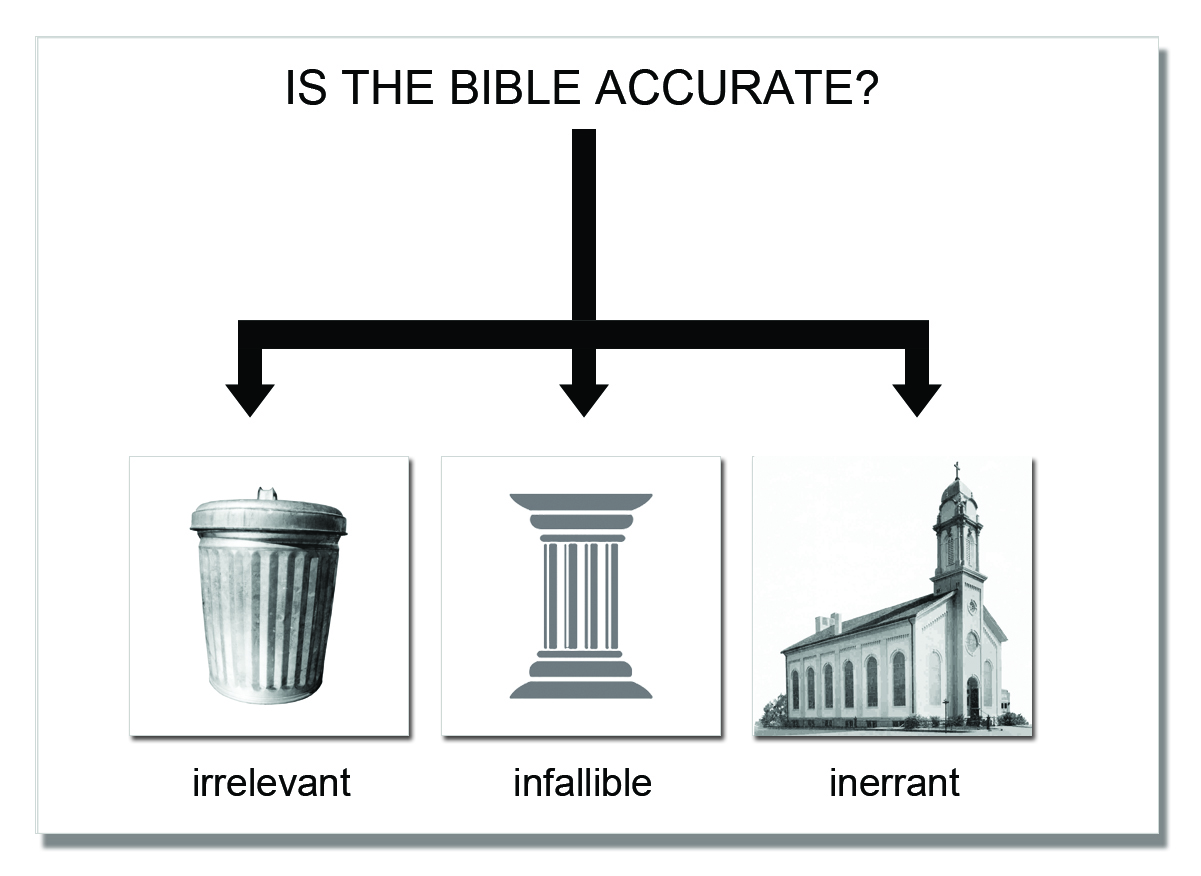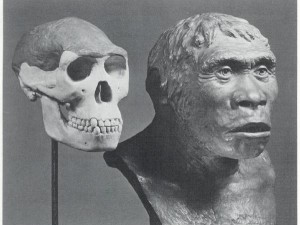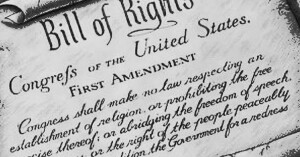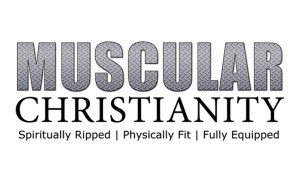A Biblical Approach to Politics | Part I

Despite the fact that Donald Trump was defeated in the 2020 Election, his opponents continue to attack his character, minimize his accomplishments and question the sanity / morality of anyone who would support him.
To some extent, you can’t help but wonder why?
If he’s no longer in office, than there’s no reason to be concerned that his policies will make their way into the public sphere given the fact that he’s no longer in a position of authority.
But there’s more to Trump than just him being a political figure.
He represents a different approach to politics that makes some very uneasy because of the way it reveals the lack of ethics and efficiency typical of big government and the Liberal perspective in general.
Ultimately, Trump’s platform translates to a result that’s very difficult to argue with, given the way it serves our country’s best interests.
But that doesn’t change the fact that those who dislike him are especially passionate in their disdain and an intelligent conversation can be a real challenge because of the way they’re conditioned to perceive Trump as evil along with anyone who would come to his defense.
And it’s not just Liberals. You’ve got Conservative Christians who either refuse to vote or assert a different name on the ballot because they’re so convinced Trump represents the kind of immorality that they simply can’t support.
So, why Trump?
Why would anyone support Donald J. Trump?
We’re going to break this down into several sections because there’s more to this than just an affinity for a particular political party.
To say that God doesn’t care about Politics is to ignore the fact that He’s the One Who facilitates all governments to begin with. And while that’s obviously a nonsensical disposition, you also have the false premise that says that God doesn’t care about the laws of a nation and how they either promote what strengthens an individual or tears them down (Prov 28:2-3, 28; 29:2, 4). He does care and He expects His people to be engaged (1 Chron 12:32; 1 Tim 2:2).
The candidate that represents the most qualified to lead is the one who champions the approach that is most consistent with the foundation laid by the ones who defeated the most powerful empire in the world and established a system of government that, up to that point, was completely unheard of in the way it established the individual as the one who had the right to choose how they wanted to be governed and the extent to which they wanted to succeed (Ps 33:12).
Over the course of the last several decades, Journalism has become more of thermostat than a thermometer and you need to be wise in the way you process information coming from those who are vying for a position in your inbox.
Christ said you’ll know a tree by it’s fruit (Lk 6:44). However Trump is made to appear in the headlines, it is his policies that need to be evaluated in order to determine the substance of his platform and not just the commentary crafted by those who have a problem with his personality or his past.
I) God and Politics
Some will insist that God doesn’t care about Politics.
Because it doesn’t directly impact a person’s soul and the fact that it can be a very divisive issue to the point where a conversation about Christ becomes difficult due to the way in which political topics can poison a dialogue, the tendency is to avoid it altogether and believe that God is basically indifferent to who gets elected and what goes on in the halls of government.
That’s absurd.
First of all, it’s God Who establishes kings and those who are in positions of authority (Dan 2:21; Rom 13:1-2; 1 Pet 2:13). So, to say that He’s not concerned is to ignore the fact that He’s the One Who facilitates governments to begin with.
Some Christian communicators cite the answer given to Joshua by an imposing figure standing near Jericho just prior to the Israelites marching around the city as evidence that God does not take sides…
13 Now when Joshua was near Jericho, he looked up and saw a man standing in front of him with a drawn sword in his hand. Joshua went up to him and asked, “Are you for us or for our enemies?”
14 “Neither,” he replied, “but as commander of the army of the Lord I have now come.” Then Joshua fell facedown to the ground in reverence, and asked him, “What message does my Lord[a] have for his servant?”
15 The commander of the Lord’s army replied, “Take off your sandals, for the place where you are standing is holy.” And Joshua did so. (Josh 5:13-15)
The fact that the man replied by saying that he was neither on the side of the Israelites nor the Canaanites was not indicative of God being neutral and detached from the situation. The fact that it was God working through the Israelites that resulted in the successful siege of Jericho demonstrates that God was obviously invested in seeing the city destroyed.
The point that was being made is that we don’t need to be asking whether or not God is on our side as much as we need to ensure that we are on God’s side and operating according to His Instructions and overall Purpose.
But even if you’re on God’s side, do we need to be concerned about voting or even paying attention to the news if God’s Purpose is going to be accomplished regardless of our involvement?
You could ask the same question about salvation, given the fact that those who are born again were predestined to be saved (Rom 8:29), yet we are to witness and Paul makes the Divinely inspired observation that you can’t expect someone to hear and understand the gospel unless someone preaches to them (Rom 10:14-15).
The fact is, God has set things up in such a way where His Sovereignty exists alongside our responsibility – both are true simultaneously (see “God’s Sovereignty & Man’s Responsibility” on sidebar). Emphasizing one over the other invariably leads to disobedience and we are commanded to pray for those who are in positions of authority (1 Tim 2:1-3). The fact that our prayers are referenced as an act that makes a difference reinforces the idea that our involvement is both mandated and effective.
II) Your Best Option
The key to political success is to model our approach according to the template used by our Founding Fathers who were able to defeat the world’s most powerful empire and to establish a system of government that, at the time, was completely unheard of. It’s that template that has allowed our country to flourish and it’s more than just political theory as much as it’s an ideological paradigm that serves as our legislative foundation.
Those ideals go beyond human preferences or sensible philosophical options and it’s because they’re rooted in a transcendent Absolute that they can be asserted as functional bottom lines.
The best qualified candidates for political office are those that possess the talent and the mindset that best facilitate those bottom lines – not just because they’re consistent with a successful history, but because of the way they’re based on Something that transcends human opinion and therefore avoids all of the corruption that characterizes the human condition.
You can see that transcendent Absolute clearly defined in the Declaration of Independence. When we submitted that document to King George, we were saying that it’s because that God has created all men to be equal (Gal 3:28) that the individual has the right to choose how they want to be governed and the extent to which they want to succeed. It’s because it was a Divine Truth that we could logically point to as that which substantiated our claim, we weren’t just filing a complaint, we were making a point. Yes, there were other brilliant political philosophers, such as John Locke, that had contributed to the collective mindset represented by the Second Continental Congress, but ultimately it was a collection of references to God that was cited as the basis for our reasoning and not the names of several respected thinkers.
This is why a candidate’s platform is so important. However noble or approachable they may appear, if their goal is to implement a worldview that runs contrary to our spiritual foundation, they invoke a doctrine that inevitably positions man as his own moral authority and the state as its own religion.
While that may sound overly simplistic, the fact is there are only two religions in the world: Either God is God or man is God.
Every religion save Christianity provides a way in which you can merit the favor of your preferred deity. With Islam you’ve got Jihad, as a Buddhist you’ve got Nirvana. Jehovah’s Witnesses strive to be among the 144,000 referenced in Revelation 7:4, Hindus pursue Moksha (MOKE-shah) in order to be liberated from the cycle of death and rebirth. Mormons believe that they themselves can attain the status of gods in the afterlife through their works here on earth (Teachings of the Prophet Joseph Smith, p. 345–354). In each scenario, while you have a supernatural element, you have the ability as a human being to tip the scales in your favor through some kind of action or mindset.
Christianity, on the other hand, says that you are a spiritual corpse (Eph 2:1). You are dead in your sin and you have no option available to you that can offset your default status as a sinner that is permanently and irretrievably separated from God (Ps 14:3; Is 64:6). That’s what makes Christianity distinct from every other religious school of thought – you are utterly destitute apart from some kind of miracle that can somehow transform you in the eyes of God from being sinful to sinless. And that miracle is the death and resurrection of Jesus Christ.
When you pull back the curtain and see how Christianity is the only authentic religion in that it’s based solely on the grace of God rather than a human being attempting to be a god, you can understand why it resonates as a stronger option in the mind of the person who recognizes the frailty of his human condition and the veiled attempt on the part of other creeds to position man as his own deity.
You can also see why from a purely logical point of view that only the Absolute Power and Perspective represented by the Word of God would suffice in providing the philosophical strength the Founders needed in order to refute a monarchy and create a republic.
John Adams said it best:
The general Principles, on which the Fathers Atchieved Independence, were the only Principles in which, that beautiful Assembly of young Gentlemen could Unite, and these Principles only could be intended by them in their Address, or by me in my Answer. And what were these general Principles? I answer, the general Principles of Christianity, in which all those Sects were United: And the general Principles of English and American Liberty, in which all those young Men United, and which had United all Parties in America, in Majorities Sufficient to assert and maintain her Independence.1
This is why the best option, when reviewing different candidates for office, is going to be the one whose policies are most consistent with Scripture.
However you may personally disagree with that premise, the verbiage of the Declaration as well as the documented comments of the early patriots demonstrates conclusively that the novel political ideas they dared to assert were not based on human preferences as much as they were Divine Guidance (see “Divine Guidance” on sidebar). And while they celebrated the Goodness of God’s Providence in the context of our nation’s initial declaration and the creation of the new Constitution, they were just as vocal in declaring that our future welfare was a certainty only if it was based on the same Resource.
Samuel Adams had this to say:
May every citizen in the army and in the country have a proper sense of the Deity upon his mind and an impression of that declaration recorded in the Bible: “Him that honoreth Me I will honor, but he that despiseth Me shall be lightly esteemed” [1 Samuel 2:30]. 2
John Adams mirrors his cousin, Samuel Adams:
…We have no Government armed with Power capable of contending with human Passions unbridled by morality and Religion. Avarice, Ambition, Revenge or Galantry, would break the strongest Cords of our Constitution as a Whale goes through a Net. Our Constitution was made only for a moral and religious People. It is wholly inadequate to the government of any other. (John Adams)3
George Washington leaves no doubt as to his perspective on religious piety and political prosperity:
Of all the dispositions and habits which lead to political prosperity, religion and morality are indispensable supports. In vain would that man claim the tribute of patriotism, who should labor to subvert these great pillars of human happiness, these firmest props of the duties of men and citizens. The mere politician, equally with the pious man, ought to respect and to cherish them. A volume could not trace all their connections with private and public felicity. Let it simply be asked: Where is the security for property, for reputation, for life, if the sense of religious obligation desert the oaths which are the instruments of investigation in courts of justice ? And let us with caution indulge the supposition that morality can be maintained without religion. Whatever may be conceded to the influence of refined education on minds of peculiar structure, reason and experience both forbid us to expect that national morality can prevail in exclusion of religious principle.4
“In vain would that man claim the tribute of patriotism, who should labor to subvert these great pillars of human happiness, these firmest props of the duties of men and citizens. The mere politician, equally with the pious man, ought to respect and to cherish them.” Washington’s words capture the spiritual and political direction that needs to be central to the platform of anyone who aspires to public office because it’s that foundation alone that guarantees a successful administration.
Some will want to insist that a Christian worldview is a needless and ignorant basis for the selection of our national leaders. They will assert the 18th popularity of Deism as a means to minimize the way in which Scripture served both as a Resource and as a Guide in the formulation of our government (see “Christianity or Deism” on sidebar). In other instances, they’ll take statements made by those like John Adams out of context and attempt to turn them into comments that prove he didn’t perceive Christianity as the fundamental foundation for our country’s government that it is (see “The God Delusion vs The God Conclusion | Part One – FIT“).
The fact is, when you consider the spiritual fabric of our nation’s initial colonization and the way in which Christianity was such a prominent cultural fixture during the time of the Revolution, any effort to try and dismiss or qualify the fact that our country is based on Christian principles borders on the absurd.
Perhaps one of the more compelling proofs of our country’s collective regard for the application of Scripture to the cause of liberty comes from the battlefield (read the story of Major General Peter Muhlenberg by clicking here).
The “Black Robe Regiment” was the name the British troops gave the clergy who supported the Revolution from behind their pulpits with their Bibles and in combat with their rifles.
Historians have commented that:
There is not a right asserted in the Declaration of Independence which had not been discussed by the New England clergy before 1763.5
British soldiers went as far as saying blaming Christianity for the Revolution:
The influence of the Reformed political tradition in the Founding era is manifested in a variety of ways, but particularly noteworthy is the almost unanimous support Calvinist clergy offered to American patriots. This was noticed by the other side, as suggested by the Loyalist Peter Oliver, who railed against the “black Regiment, the dissenting Clergy, who took so active a part in the Rebellion.” King George himself reportedly referred to the War for Independence as “a Presbyterian Rebellion.” From the English perspective, British Major Harry Rooke was largely correct when he confiscated a presumably Calvinist book from an American prisoner and remarked that “[i]t is your G-d Damned Religion of this Country that ruins the Country; Damn your religion.”6
 While it is not difficult to believe that the Founders based their approach to government on Christian principles, given their verbiage both public and private, it is nevertheless challenging to reconcile their perspective with the fact that many owned slaves.
While it is not difficult to believe that the Founders based their approach to government on Christian principles, given their verbiage both public and private, it is nevertheless challenging to reconcile their perspective with the fact that many owned slaves.
While Slavery is by no means an American institution, the fact that it’s contrary to Scripture (Ex 21:16) and an inhumane practice in general, makes it easy to question the mindset of those delegates from the South that comprised the Second Continental Congress.
How do you process a document written and agreed upon by men, many of whom maintained a mindset that allowed for the enslavement of human beings?
First of all, from a purely practical standpoint, we don’t evaluate the Constitution or the Declaration of Independence according to the character flaws of the men who wrote them. Rather, we evaluate them according to the substance of the documents themselves.
Secondly, many of those that owned slaves were the same ones who sacrificed their homes, their fortunes and, in some cases, their lives, to ensure a system of government that possessed the necessary tenants that would ultimately translate to the end of the slave trade.
Third, to align yourself with the Revolution, whether as a statesman or a soldier, you were committing treason against the crown. The punishment for that included:
- That the offender be drawn to the gallows, and not be carried or walk: though usually (by connivance length ripened by humanity into law) a sledge or hurdle is allowed, to preserve the offender from the extreme torment of being dragged on the ground or pavement
- That he be hanged by the neck and then cut down alive
- That his entrails be taken out and burned, while he is yet alive
- That his head be cut off
- That his body be divided in four parts
- That his head and quarters be at the king’s disposal7
This was the fate that loomed over the progress of the Revolution. Those that fought and served to win America’s independence did so risking everything. However flawed they were in the way they processed the sin of slavery doesn’t change the substance of their work. It’s that work that we honor, not just because of the sacrifices that were made which made it possible, but also because of how the biblically based freedoms those efforts established would go on to secure the liberties that timeframe denied to others.
Historian Stephen E. Ambrose sums it beautifully in an article featured in “Smithsonian Magazine:”
Slavery and discrimination cloud our minds in the most extraordinary ways, including a blanket judgment today against American slave owners in the 18th and 19th centuries. That the masters should be judged as lacking in the scope of their minds and hearts is fair, indeed must be insisted upon, but that doesn’t mean we should judge the whole of them only by this part.8
Some of the most accomplished characters in Scripture were guilty of some truly despicable sins: David and his affair with Bathsheba and his subsequent murder of Uriah (1 Sam 11) and Paul, one of the more prolific writers of the New Testament, condoned the murder of Stephen and was an accessory to the persecution and imprisonment of perhaps hundreds of Christians (Acts 22:17-20).
While it’s tempting to place yourself in a category distinct from that kind of wrongdoing and be able to feel as though you appear more righteous in the sight of your Heavenly Father, you have to remember that all sin requires an attitude that is as heinous as it is universal.
In order to sin in any capacity, you have to walk up to God as He’s sitting on His Throne and tell Him to get out of your chair. Granted, some sins are unintentional (Num 15:27-31), but the vast majority of them are deliberate and all of it requires grace including everything from speeding (Rom 13:1-7) to overeating (Prov 23:20-21; 1 Cor 6:19-20).
The fact of the matter is anytime you’re looking at a believer, you’re looking at two worlds that are operating side by side simultaneously. While the power of sin has been destroyed (Rom 6:6), our capacity to sin remains (Rom 7:14-25). And the thing is, in the words of Paul, “…there is nothing good in me.” (Rom 7:18) Whatever good I’m able to do, it’s more because of God working in and through me (Ezr 1:5; 1 Cor 12:6; Phil 2:13) than it is me functioning according to a morally pure mindset.
This is why we can embrace the accomplishments of certain individuals despite them having significant sin in their lives. We can applaud the Activity of God in and through an individual without endorsing the depravity of that same person.
You don’t overlook wrongdoing (1 Cor 5:13), but you never want to become so preoccupied with the sin in others that you forget the way in which God uses both brand new gloves and filthy mitts to catch fly balls. We give God the credit because it’s Him doing the work and the fact that He uses sinners like you and me is a testament to His Grace and not our goodness.
And the same thing applies to unbelievers as well. However distant that person may be from God doesn’t change the fact that God can, and often does, use people who don’t honor Him to do His Work.
King Cyrus didn’t know or acknowledge God. For an orthodox Jew, that must’ve been a hard pill to swallow given the fact that Cyrus was not only a Gentile, but he was an idolater. Yet, God referred to him as “my shepherd” and it was through Cyrus’ administration that the Hebrews were able to rebuild their capital city (Ezr 1:2-4; Is 44:28; 45:5).
The example of Cyrus demonstrates that a leader can be a heathen and still be worthy of your support because of the way their platform promotes and protects the work of God. So the question isn’t, “How can I support someone who doesn’t acknowledge God?” The question is, “Whose platform is most aligned with that which promotes and protects our nation’s spiritual wellbeing?” Or, another question which better accommodates the whole of Scripture as opposed to those passages that restrict God’s usage of individuals to those that honor Him would be, “Would you have voted for King Cyrus?”
III) Conclusion (Part I)
God cares about Politics.
He facilitates governments and He uses our involvement and prayers to accomplish His Purposes.
Our nation is founded on Christian Principles that come from the Word of God. Our Founders were not masquerading as pious human beings when they cited Divine Absolutes as the basis for their declaration to King George. Anything less than the Substance of Scripture would’ve reduced our cause to nothing more than a complaint and it’s those same Truths that guarantee our continued success and serve as the basis for the way in which we choose our elected officials.
The thing is, God does care about Politics because it’s not just “politics.” It’s either His Purposes or man’s rebellion being played out in the context of legislation and foreign policy.
God cares about Politics.
To read “A Biblical Approach to Politics | Part II,” click here…
1. “John Adams to Thomas Jefferson 28 June 1813”, “Founders Online”, https://founders.archives.gov/documents/Jefferson/03-06-02-0208#:~:text=The%20general%20Principles%2C%20on%20which,by%20me%20in%20my%20Answer, accessed February 2, 2022
2. “The Writings of Samuel Adams”, Harry Alonzo Cushing, G.P. Putnam’s Sons, New York, London, 1908, p189
3. “From John Adams to Massachusetts Militia, 11 October 1798”, “Founders Online”, https://founders.archives.gov/documents/Adams/99-02-02-3102, accessed February 2, 2022
4. “Transcript of President George Washington’s Farewell Address (1796)”, ourdocuments.gov, https://www.ourdocuments.gov/doc.php?flash=false&doc=15&page=transcript, accessed January 31, 2022
5. Alice M. Baldwin, The New England Clergy and the American Revolution (New York: Frederick Ungar, 1958), p. 170
6. Douglass Adair and John A. Schutz, eds., Peter Oliver’s Origin and Progress of the American Rebellion (Stanford: Stanford University Press, 1961), p. 41; Paul Johnson, A History of the American People (New York: HarperCollins, 1997), p. 173; John Leach, “A Journal Kept by John Leach, During His Confinement by the British, In Boston Gaol, in 1775,” The New England Historical and Genealogical Register, Vol.19 (1865), p. 256
7. Blackstone, Wm., Knight. Chase, George, ed. Chase’s Blackstone Commentaries on the Laws of England in Four Books. New York: Baker, Voorhis & Co., 1936, p891
8. “Founding Fathers and Slaveholders”, Stephen E. Ambrose, “Smithsonian Magazine”, November 2002, https://www.smithsonianmag.com/history/founding-fathers-and-slaveholders-72262393/, accessed February 2, 2022
Excellent Reading: “Did America Have a Christian Founding” Mark David Hall























You must be logged in to post a comment.